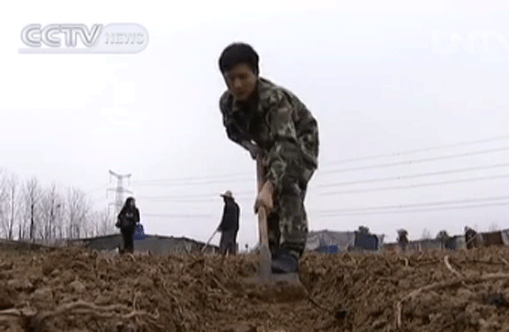Family farms flourish in Wuhan

 0 Comment(s)
0 Comment(s) Print
Print E-mail CNTV, March 16, 2013
E-mail CNTV, March 16, 2013
At the beginning of this year, The State Council issued its first document on agriculture, urging the development of family farms across the country. But this term is not new to Wuhan, the capital of central China’s Hubei province.
After snow blankets her farm, 45 year-old Zhu Lanping starts clearing the land. But it’s impossible for her to accomplish the task alone, having nearly 80 hectare of arable land to tend to.
Zhu Lanping, Family Farmer, said, “90% of my farm land today was transferred from my neighbors since 2002. The government’s 32 thousand yuan subsidies helped me a lot. I set aside one part for organic vegetables, another part for raising pigs, and the last part for fish farming. It’s a rotational farming system.”
Zhu Lanping’s team is composed of her neighbors, including 10 permanent workers and 40 temporary ones. Her farm has helped boost local employment. Her son, Wu Di also joined her last year.
Wu Di, Family Farmer, said, "I worked as a driver and a part-time model in Wuhan. My friends don't understand why I returned home to till the field. I earn more now and I have more free time. I've never felt more satisfied and happier."
Every year Zhu Lanping invests approximately 2 million yuan into her family farm, and it brings her a profit of over 600,000 yuan per year.
Xia Ruixue, Wuhan, Hubei Province, said, "Zhu Lanping is one of first group of people benefitted from the family farms. And this new farming format is enticing more migrant workers to return home to till fields. Farmers’ income has been increased. And some even has risen to the agribusiness professionals."
The new development of family farms signifies an important step in modernizing the country's agricultural sector. Many believe it will improve productivity, which in turn can improve economic efficiency in the country’s rural areas.





